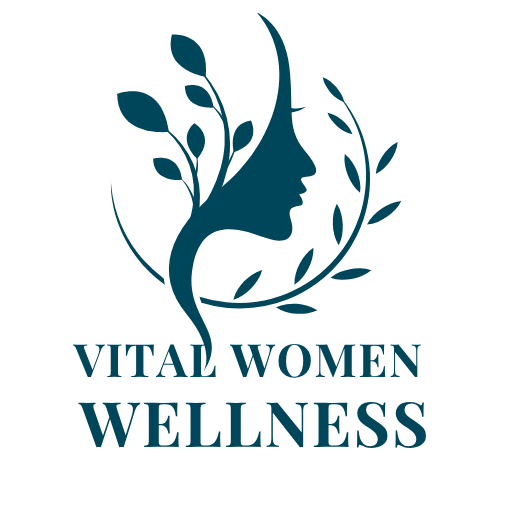Hormonal imbalances have become increasingly common in our modern world. Stress, environmental toxins, and poor dietary habits all contribute to disruptions in our endocrine system.
These imbalances can affect everything from mood and energy levels to reproductive health and metabolism.
Fortunately, nature provides us with powerful herbal supplements that can help restore balance to our hormones and support overall wellbeing.
Understanding the Endocrine System
The endocrine system is a complex network of glands that produce and secrete hormones directly into our bloodstream. These chemical messengers regulate virtually every function in our body, including:
- Growth and development
- Metabolism
- Reproduction
- Mood
- Sleep
- Energy levels
Key players in the endocrine system include:
- The hypothalamus and pituitary gland (often called the “master glands”)
- Thyroid and parathyroid glands
- Adrenal glands
- Pancreas
- Reproductive glands (ovaries in women, testes in men)
When this delicate system gets thrown off balance, it can lead to a wide range of symptoms and health issues. Common hormonal imbalances include thyroid disorders, adrenal fatigue, polycystic ovary syndrome (PCOS), and menopausal symptoms.
The Power of Adaptogenic Herbs
One of the most exciting categories of herbal supplements for hormonal health is adaptogens. These remarkable herbs have the unique ability to help the body adapt to stress and promote overall balance in the endocrine system.
Adaptogens work by modulating the hypothalamic-pituitary-adrenal (HPA) axis, which is our central stress response system. By supporting the HPA axis, adaptogenic herbs can help regulate cortisol levels, improve energy, and enhance our resilience to both physical and emotional stressors.
Some of the most potent adaptogenic herbs include:
1. Ashwagandha
This ancient Ayurvedic herb has been shown to reduce cortisol levels and support thyroid function. Ashwagandha is particularly useful for those dealing with stress-related hormonal imbalances.
Studies have found it can help reduce anxiety, improve sleep quality, and even boost testosterone levels in men.
Try this product from Amazon: ORGANIC INDIA Ashwagandha Capsules
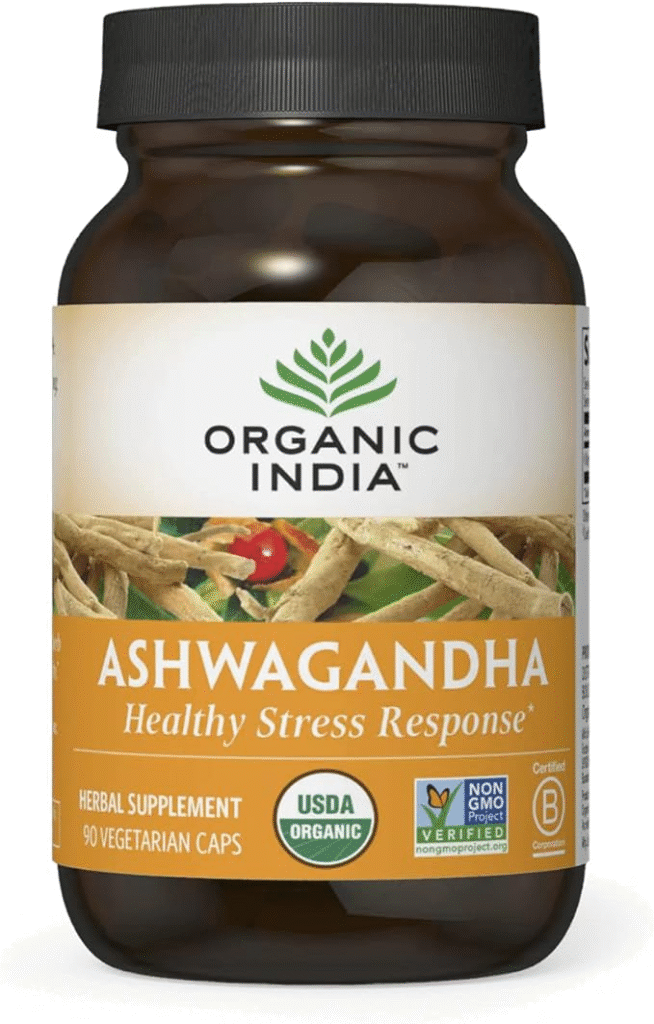
2. Rhodiola rosea
Known for its ability to combat fatigue and enhance mental performance, Rhodiola can also help balance cortisol levels and support a healthy stress response. Research suggests it may be useful for improving mood, reducing symptoms of burnout, and enhancing physical performance.
Try this product from Amazon: Himalaya Rhodiola Rosea
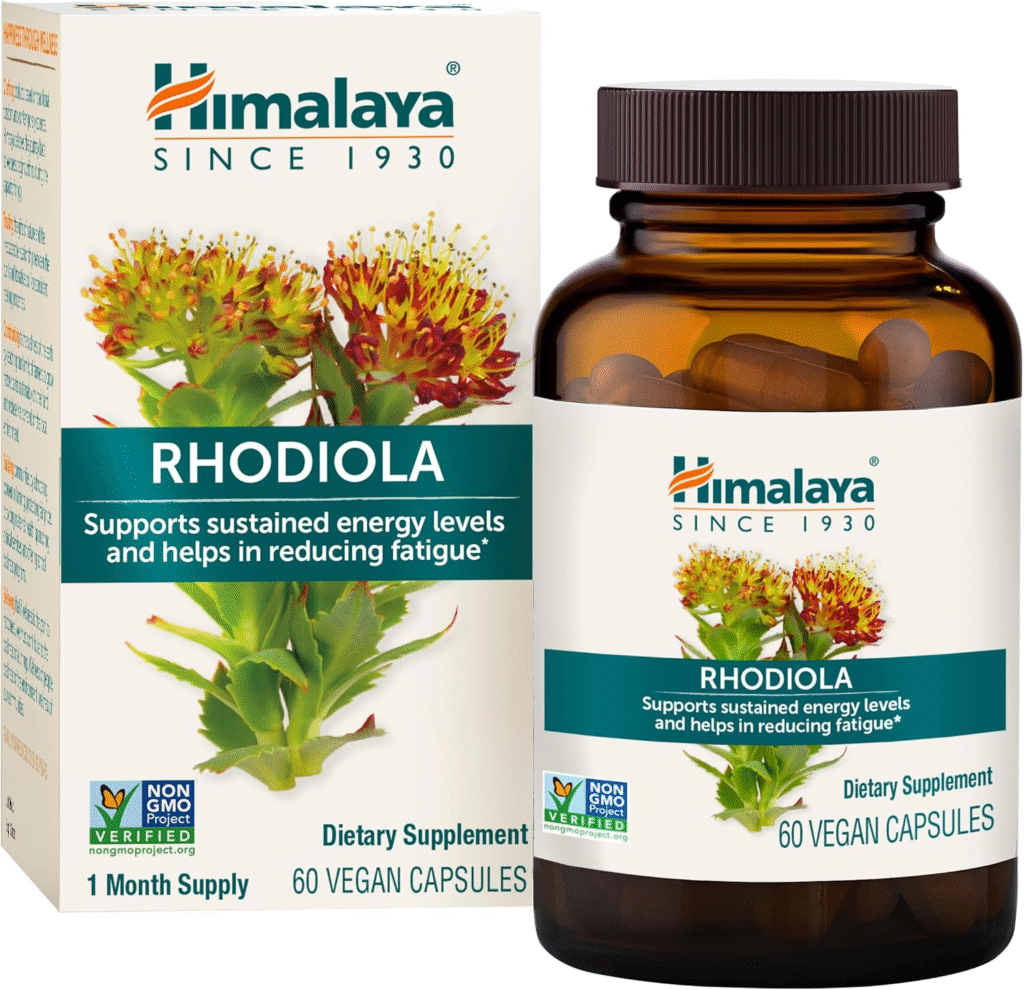
3. Holy Basil (Tulsi)
This sacred herb in Ayurvedic medicine is a powerful adaptogen that can help regulate blood sugar levels, reduce inflammation, and support overall hormonal balance. Holy basil has been shown to have anti-stress properties and may help improve cognitive function.
Try this product from Amazon: ORGANIC INDIA Tulsi Holy Basil Capsules
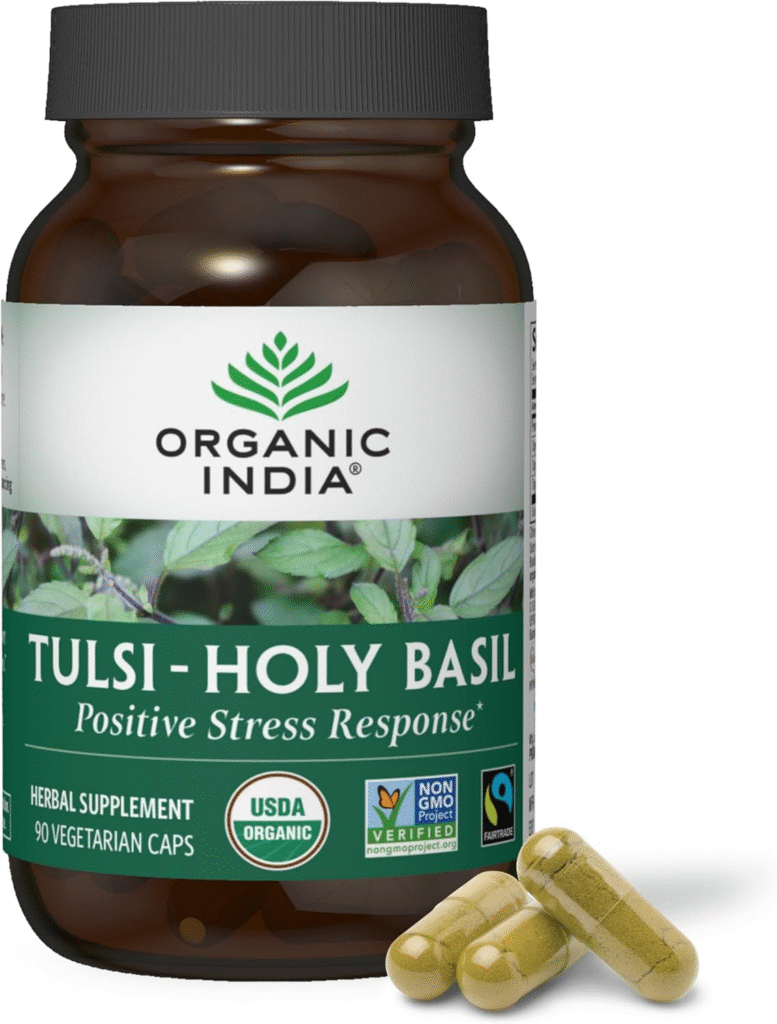
4. Maca root
Native to the high Andes of Peru, maca is renowned for its ability to support reproductive health in both men and women. It can help balance sex hormones and improve libido.
Studies have found maca may help reduce menopausal symptoms and improve sperm quality in men.
Try this product from Amazon: Organic Maca Root Capsules
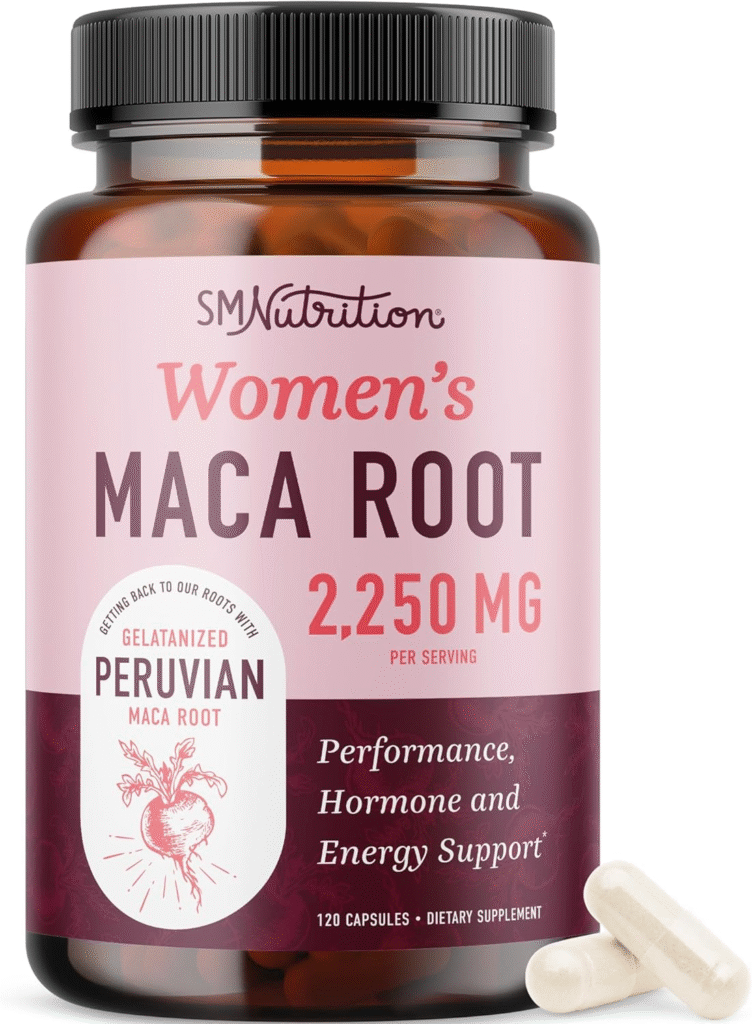
Herbal Support for Specific Hormonal Issues
While adaptogens offer broad support for the endocrine system, other herbs target specific hormonal concerns:
Menopause and Perimenopause
As women transition through menopause, they often experience a range of symptoms because of declining estrogen levels. Several herbs can help ease this transition:
Black Cohosh
This North American herb has been extensively studied for its ability to reduce hot flashes and other menopausal symptoms. Research suggests it may work by acting on serotonin receptors, helping to regulate body temperature and mood.
Dong Quai
Often called “female ginseng,” this Chinese herb can help regulate estrogen levels and reduce menstrual cramps. It’s been used for centuries in traditional Chinese medicine to support women’s health throughout various life stages.
Red Clover
Rich in phytoestrogens, red clover can help mitigate the effects of declining estrogen during menopause. Studies have found it may help reduce hot flashes and improve bone density in postmenopausal women.
Synergistic Herb Combinations
While person herbs can be powerful on their own, many herbalists and practitioners believe in the synergistic effects of combining many herbs. This approach, often seen in traditional medicine systems, can provide more comprehensive support for hormonal health.
For example, a blend of Vitex (Chasteberry), Dong Quai, and Black Cohosh might be used to support women’s hormonal balance throughout their reproductive years and into menopause. This combination could help regulate menstrual cycles, reduce PMS symptoms, and ease menopausal discomfort.
Similarly, a combination of Ashwagandha, Rhodiola, and Holy Basil could offer potent stress-reducing and hormone-balancing effects for both men and women. This adaptogenic blend could help improve resilience to stress, support adrenal function, and promote overall hormonal balance.
The Science Behind Herbal Supplements
While herbal medicine has been used for thousands of years, modern scientific research is now catching up and providing evidence for the efficacy of many herbs in supporting hormonal health.
A 2019 systematic review published in the Journal of Clinical Medicine found that Ashwagandha supplementation was associated with significant improvements in stress and anxiety levels, as well as reductions in cortisol levels. The researchers provides evidence that Ashwagandha could be a useful tool for managing stress-related disorders.
Another study published in Phytotherapy Research in 2018 showed that Maca root supplementation could improve sexual function and libido in both men and women. The researchers found that Maca had a positive effect on sexual want after at least 6 weeks of intake.
A 2016 study in the journal Menopause found that red clover isoflavones significantly decreased the frequency of hot flashes in menopausal women compared to placebo. The study also noted improvements in vaginal atrophy symptoms.
These studies, among many others, are helping to bridge the gap between traditional herbal wisdom and modern scientific understanding. However, more research is still needed in many areas, particularly regarding long-term use and potential interactions with medications.
Safety Considerations and Potential Interactions
While herbal supplements can be incredibly useful for hormonal health, it’s important to approach them with care and awareness. Some herbs can interact with medications or may not be suitable for certain health conditions.
For instance, herbs with estrogenic effects (like red clover or dong quai) should be used cautiously by people with hormone-sensitive conditions such as certain types of breast cancer. Similarly, some herbs can affect blood sugar levels or blood pressure, which is important to consider if you’re taking medications for diabetes or hypertension.
It’s always best to ask with a qualified healthcare practitioner before starting any new herbal regimen, especially if you have pre-existing health conditions or are taking medications. A healthcare provider can help you decide which herbs are safe and suitable for your person needs.
Lifestyle Factors for Optimal Hormonal Health
While herbal supplements can be powerful allies in achieving hormonal balance, they work best when combined with a holistic approach to health. This includes:
1. A nutrient-dense diet rich in whole foods
Eating a balanced diet with plenty of fruits, vegetables, lean proteins, and healthy fats provides the nutrients your body needs to produce and regulate hormones. Certain foods, like cruciferous vegetables and flaxseeds, contain compounds that can help support hormonal balance.
2. Regular exercise and movement
Physical activity plays a crucial role in hormonal health. Exercise can help reduce stress, improve insulin sensitivity, and support healthy testosterone and growth hormone levels.
Aim for a mix of cardiovascular exercise and strength training.
3. Stress management techniques
Chronic stress can wreak havoc on your hormones, particularly cortisol levels. Incorporating stress-reduction techniques like meditation, yoga, or deep breathing exercises can help support overall hormonal balance.
4. Adequate sleep and rest
Sleep is crucial for hormonal health. During sleep, your body produces and regulates many hormones, including growth hormone and melatonin. Aim for 7-9 hours of quality sleep each night.
5. Minimizing exposure to endocrine-disrupting chemicals
Many common household products contain chemicals that can disrupt hormone function. Choose natural, non-toxic products when possible and avoid plastics containing BPA.
By addressing these foundational aspects of health alongside herbal supplementation, you can create a powerful synergy that supports optimal hormonal balance.
Choosing Quality Herbal Supplements
The effectiveness of herbal supplements largely depends on their quality. When selecting herbs for hormonal health, consider the following:
- Choose standardized extracts when possible, as these confirm a consistent level of active compounds.
- Look for reputable brands that conduct third-party testing for purity and potency.
- Consider the form of the supplement (capsules, tinctures, teas) based on your preferences and the herb’s traditional use.
- Start with lower doses and gradually increase as needed, paying attention to how your body responds.
It’s also worth noting that some herbs may be more effective in certain forms. For example, adaptogenic herbs like Ashwagandha are often most potent as standardized extracts, while herbs like chamomile may be most useful when consumed as a tea.
The Future of Herbal Medicine in Hormonal Health
As research in the field of herbal medicine continues to advance, we’re likely to see even more evidence supporting the use of herbs for hormonal health. Integrative medicine approaches that mix the best of conventional and herbal treatments are becoming increasingly popular, offering patients more comprehensive and personalized care.
Additionally, as our understanding of the complex interplay between hormones, the gut microbiome, and the immune system grows, we may learn new applications for traditional herbs or uncover before unknown herbal allies in our quest for hormonal balance.
Emerging areas of research include:
- The role of adaptogens in reducing the effects of chronic stress on hormonal health
- The potential of phytoestrogens in supporting bone health and cardiovascular function in postmenopausal women
- The use of herbs in supporting fertility and reproductive health in both men and women
- The potential of certain herbs in managing metabolic disorders like diabetes and PCOS
As this research progresses, we may see more targeted and effective herbal protocols for specific hormonal imbalances.
Practical Tips for Incorporating Herbal Supplements
If you’re new to using herbal supplements for hormonal health, here are some practical tips to get you started:
- Start with one herb at a time: This allows you to observe how your body responds and identify any potential side effects.
- Be patient: Unlike synthetic hormones, herbs often work more gently and may take several weeks or even months to show their full effects.
- Keep a journal: Track your symptoms, energy levels, and any changes you notice as you incorporate herbal supplements into your routine.
- Consider cycling herbs: Some practitioners recommend taking breaks from certain herbs or rotating them to prevent tolerance and maintain effectiveness.
- Don’t neglect the basics: Remember that herbs work best when combined with a healthy diet, regular exercise, and stress management techniques.
- Listen to your body: Pay attention to how you feel as you start taking herbal supplements.
If you experience any adverse effects, stop use and ask with a healthcare provider.
- Be consistent: For best results, take your herbal supplements regularly as directed. Many herbs need to be taken consistently over time to see benefits.
- Consider the time of day: Some herbs may be best taken in the morning (like energizing adaptogens), while others might be more suitable in the evening (like calming herbs).
- Pair with suitable lifestyle changes: For example, if you’re taking herbs to support adrenal health, also focus on stress reduction techniques and getting adequate sleep.
- Educate yourself: Learn about the herbs you’re taking, their traditional uses, and any potential interactions or contraindications.
Frequently Asked Questions
What are the best herbs for balancing hormones?
Some of the most effective herbs for hormonal balance include adaptogens like Ashwagandha and Rhodiola, as well as herbs specific to certain hormonal issues like Black Cohosh for menopause symptoms or Saw Palmetto for men’s health.
Can herbs really help with hormonal imbalances?
Yes, many herbs have been shown in scientific studies to help support hormonal balance. However, their effectiveness can vary depending on the person and the specific hormonal issue.
How long does it take for herbal supplements to work for hormones?
The time frame can vary, but many people start to notice effects within 4-6 weeks of consistent use. Some herbs may take longer, up to 3 months, to show full benefits.
Are herbal supplements safe for long-term use?
Many herbs are safe for long-term use, but it’s always best to ask with a healthcare provider, especially if you have any pre-existing conditions or are taking medications.
Can I take many herbs for hormonal health at the same time?
Yes, many herbs can be taken together and may even have synergistic effects. However, it’s important to start with one at a time and ask with a knowledgeable practitioner before combining many herbs.
Do I need to cycle off herbal supplements?
Some practitioners recommend cycling certain herbs to prevent tolerance, but this isn’t necessary for all herbs. It’s best to ask with a healthcare provider for personalized advice.
Can herbal supplements interfere with birth control?
Some herbs, particularly those with estrogenic effects, may potentially interfere with hormonal birth control. Always ask with a healthcare provider if you’re taking birth control.
Are there any side effects of taking herbal supplements for hormonal health?
While herbs are generally safe, they can cause side effects in some people. These can range from mild digestive upset to more serious effects.
Always start with a low dose and watch your body’s response.
Can men benefit from herbal supplements for hormonal health?
Absolutely. Many herbs can support men’s hormonal health, including those that support testosterone levels, prostate health, and stress management.
How do I know if I have a hormonal imbalance?
Common signs of hormonal imbalance include irregular periods, mood swings, fatigue, weight changes, and sleep disturbances. However, it’s best to ask with a healthcare provider for proper diagnosis.
Key Takeaways
- Herbal supplements offer a natural approach to supporting hormonal health, with adaptogenic herbs providing broad endocrine system support.
- Specific herbs can target particular hormonal issues such as menopause symptoms, male hormonal health, and thyroid function.
- Combining herbs can create synergistic effects for more comprehensive hormonal support.
- Safety and quality are crucial when using herbal supplements, and they should be used as part of a holistic approach to health.
- The field of herbal medicine for hormonal health is evolving, with ongoing research providing more evidence for traditional uses and uncovering new applications.
Disclaimer
The information contained in this post is for general information purposes only. The information is provided by How Herbal Supplements Can Help with Hormonal Health and while we endeavor to keep the information up to date and correct, we make no representations or warranties of any kind, express or implied, about the completeness, accuracy, reliability, suitability or availability with respect to the website or the information, products, services, or related graphics contained on the post for any purpose.
